By Lee Salisbury
(Lee lives in Stillwater and this letter appeared in the Stillwater Gazette.)
 Do we really appreciate the ideals that make America great? From the Declaration of Independence we find phrases such as “all men are created equal…with certain inalienable rights…Life, Liberty, and the pursuit of happiness.” The Constitution begins, “We the people of the United States, in order to form a more perfect union, establish justice, insure domestic tranquility, provide for the common defense, promote the general welfare, and secure the blessings of liberty to ourselves and our posterity, do ordain and establish this Constitution for the United States of America.”
Do we really appreciate the ideals that make America great? From the Declaration of Independence we find phrases such as “all men are created equal…with certain inalienable rights…Life, Liberty, and the pursuit of happiness.” The Constitution begins, “We the people of the United States, in order to form a more perfect union, establish justice, insure domestic tranquility, provide for the common defense, promote the general welfare, and secure the blessings of liberty to ourselves and our posterity, do ordain and establish this Constitution for the United States of America.”
We should marvel at the character, the tenacity, the intestinal fortitude of the few who spend a lifetime fighting the forces that oppose America’s ideals as set forth by our founding fathers.
Fortunately for America there was a woman named Elizabeth Cady Stanton (1815 - 1902) who would not be intimidated or defeated. She spent her life fighting for equal rights for all humanity. Her battle started with slavery. After investigating slavery, she shocked the abolitionists by declaring that the Bible and its clergy were the primary reasons for slavery’s existence in America.
Even before abolition was achieved, she turned her attention to the miserable niche her own sex occupied in society. Again she asserted the Bible and Christianity as the cause. Christian dogmatists had an agenda for women — no divorce, no vote, no birth control, no right to own property, and no equality.
Ms. Stanton stated, “To me, there was no question so important as the emancipation of women from the dogmas of the past, political, religious, and social. It struck me as very remarkable that abolitionists, who felt so keenly the wrongs of the slave, should be so oblivious to the equal wrongs of their own mothers, wives, and sisters, when, according to the common law, both classes occupied a similar legal status.”
July 19-20, 1848 Elizabeth Cady Stanton, with four friends convened the very first woman's rights convention in the world in Seneca Falls, N.Y. Stanton was the first woman to call for "women’s suffrage." Stanton warned that suffrage was almost “too shocking to utter” and would alienate supporters. Nevertheless, the suffrage plank won endorsement and galvanized U.S. women for the next 72 years.
Fifty years after that convention Elizabeth Cady Stanton, said in an interview with the Chicago Record, June 29,1897, “In the early days of woman-suffrage agitation, I saw that the greatest obstacle we had to overcome was the Bible. It was hurled at us on every side.”
Soon Susan B. Anthony and hundreds of other women and men who had had their fill of bigotry joined her. Ms. Stanton wrote, “When women understand that governments and religions are human inventions; that bibles, prayer-books, catechisms, and encyclical letters are all emanations from the brains of man, they will no longer be oppressed by the injunctions that come to them with the divine authority of ‘Thus sayeth the Lord.’”
She fought for 50 years against the ponderous inertia of chauvinism. For half a century she attacked the pulpits and the irrational dogma that came from them. She found the bible revolting and largely uncivilized. Preachers tried to comfort her by claiming the New Testament was better than the Old, only to hear her say, “All the men of the Old Testament were polygamists, and Christ and Paul, the central figures of the New Testament, were celibates, and condemned marriage by both precept and example.” For years she and a score of women combed the Bible to highlight its perverse vilification of their sex. The completed project took two volumes to contain it all. It was called The Woman’s Bible and it started an uproar that caused it to be published time and time again. It remains in print today.
It is fitting that the words in the Nineteenth Amendment to the Constitution granting women’s suffrage were written by Ms. Stanton. When it passed in 1920, she had been dead for 18 years.
The Nineteenth Amendment is a testament to Elizabeth Cady Stanton’s status as an American hero. Ms. Stanton did not need to wear a flag lapel-pin or say the pledge of allegiance to prove her patriotism. She understood and honored America’s ideals and demanded they supercede all conflicting ideals, religious or otherwise. Ms. Stanton demonstrated what it means to call oneself an American.
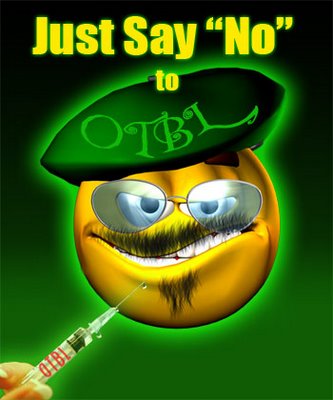









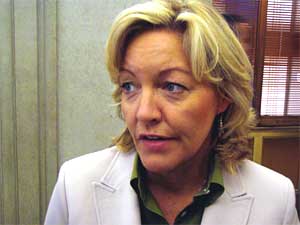
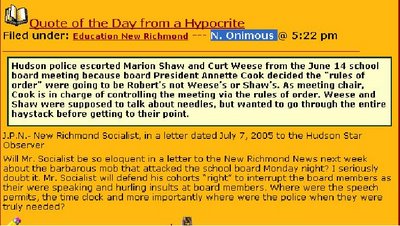











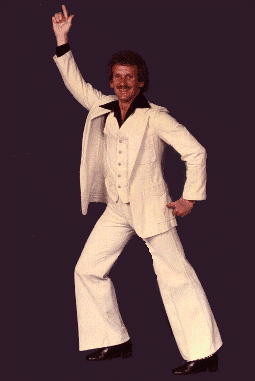
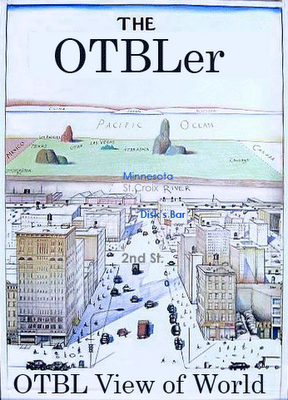



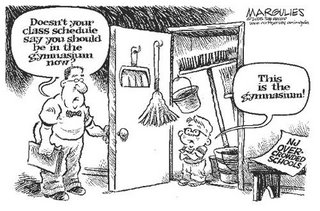































August 23rd, 2006 at 9:03
Luke, that’s old news and there is not a damned thing anybody can do about it except bitch.
I say move on and get three new board members and start improving student performance and our facilities.